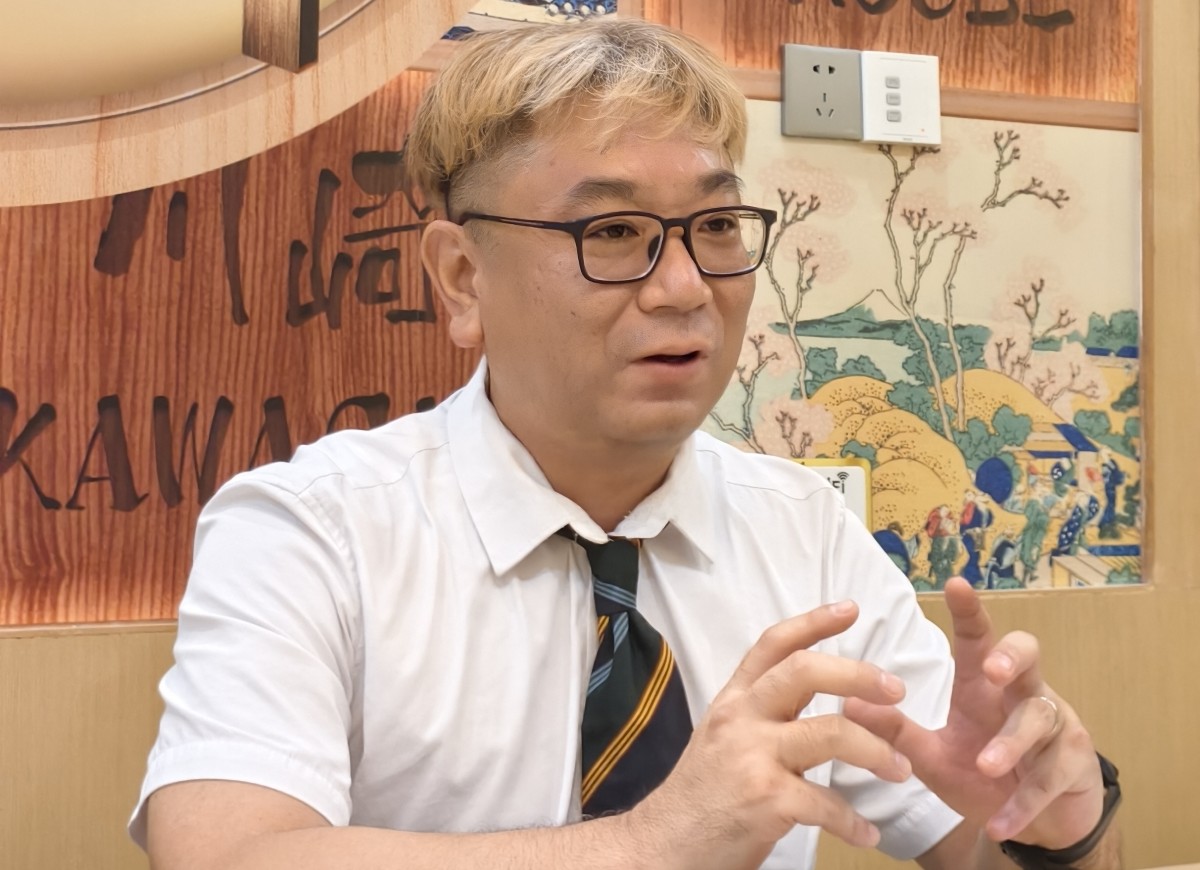
We had the opportunity to speak with Mr.oka, the organizer of the China-Japan Exchange Meeting.
The “China-Japan Exchange Meeting” is a community gathering held regularly in Shenzhen, aiming to promote and build connections between Chinese and Japanese participants. The event brings together people from both Chinese and Japanese companies, encouraging interaction beyond corporate boundaries.
This time, in celebration of the milestone 50th event, held on July 19, 2025, our company, Beyond Technology, conducted an interview to learn more about its background and impact. (Honorifics omitted below.)
Table of Contents
● oka:
I currently work in the quality control department of a Japanese manufacturing company in China, mainly dealing with mechanical parts used in watches and other precision devices.
Originally, after graduating from university in Japan, I worked as a clinical laboratory technician at a hospital. While living that everyday life, I gradually developed an interest in the world beyond Japan. This curiosity led me to start studying English while still living in Japan. As part of my language learning, I also began exchanging emails with pen pals from all over the world.
Eventually, I didn’t just stop at writing emails—I started visiting the people I had connected with. My interest in foreign cultures continued to grow, and I eventually thought, “I want to travel the world!” To prepare for that journey, I decided it would be helpful to study another language besides English—and I chose Chinese.
In 1999, I set off on my round-the-world trip, with China as my first destination. However, I ended up spending all the money I had saved for the trip while in China. That left me with two choices: find a job in China or return to Japan. But since I had originally set out with the goal of exploring the world, I didn’t want to give up so easily.
While I was weighing my options, I happened to come across a job opportunity at a Chinese manufacturing company. They were quite surprised to meet a Japanese person in China and said, “Even if you don’t have any experience in manufacturing, if you can speak Chinese, we’ll hire you!” And just like that, I got the job.
Since then, I’ve been living in China. I got married here, had children, changed jobs a few times, and that’s how I’ve arrived at where I am today.
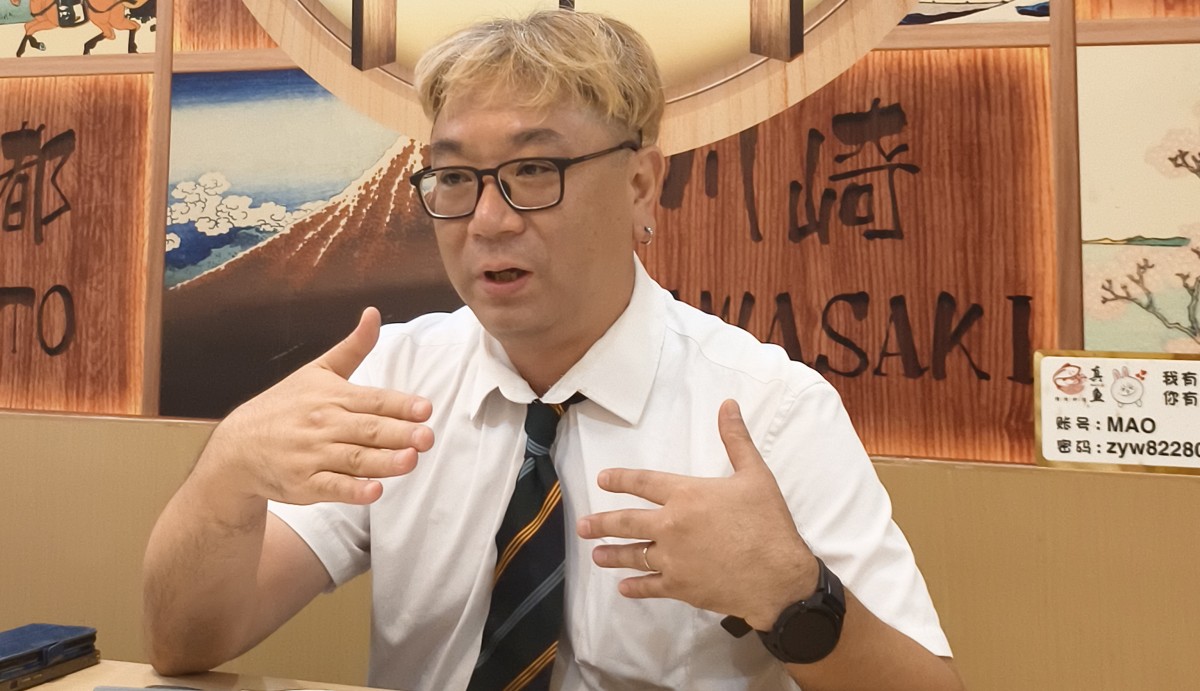
● oka:
It was deep and fascinating—very different from what it is today. The atmosphere back then had a raw charm to it. Nowadays, things have become a bit too refined, and maybe that’s taken away some of the edge, some of the fun.
One of the biggest shocks for me back then was how little English was understood. Coming from Japan, I had this image that “Overseas = English,” and I kind of assumed that as long as I could speak English, I’d manage somehow. But in China at the time, English just didn’t get me anywhere.
So I realized I had no choice but to learn Chinese. I decided to study abroad at a school in Guangzhou. The reason I chose Guangzhou was simple: I did some research while still in Japan and found that, when you add up tuition and dormitory costs, the cheapest option was a particular school in Guangzhou. So that’s where I went. And at that school, even though Cantonese was being spoken all around me, I was learning Mandarin.
● oka:
This is a story from years ago. I once knew a Japanese business owner who ran a company that manufactured towels in China and sold them in Japan.
One day, the president of that Japanese company said to me, “I want to visit the Canton Fair, but I don’t speak Chinese. Could you act as my interpreter for the day?” So we went together. As Japanese visitors, we walked around and explored various booths at the trade fair. At one particular booth run by a Chinese manufacturer, once they realized we were from a Japanese company, they said to us, “Please don’t come here again.”
I looked at the president and said, “What was that about?” He replied, quite nonchalantly, “This kind of thing happens all the time.” He explained that the Chinese company exhibiting at that booth had probably done business with Japanese companies in the past.
The context behind this incident is quite telling. For example, when the buyer is a Western company, they tend to place large volume orders and are generally less demanding when it comes to detailed quality requirements. That makes them attractive clients from a Chinese manufacturer’s perspective. On the other hand, Japanese companies often place smaller orders but impose extremely strict quality standards, which can make them less appealing to deal with.
In the case of the Japanese towel manufacturer I accompanied, one of their requirements was that if the towel fabric was folded, not even the smallest fraying should appear at the edges. That level of detail can be off-putting.
However, looking at it from another angle, a Chinese manufacturer that has done business with Japanese companies can proudly say, “We’ve met the high standards of Japanese clients.” This can actually become a strong selling point and a mark of capability for the Chinese company as well.
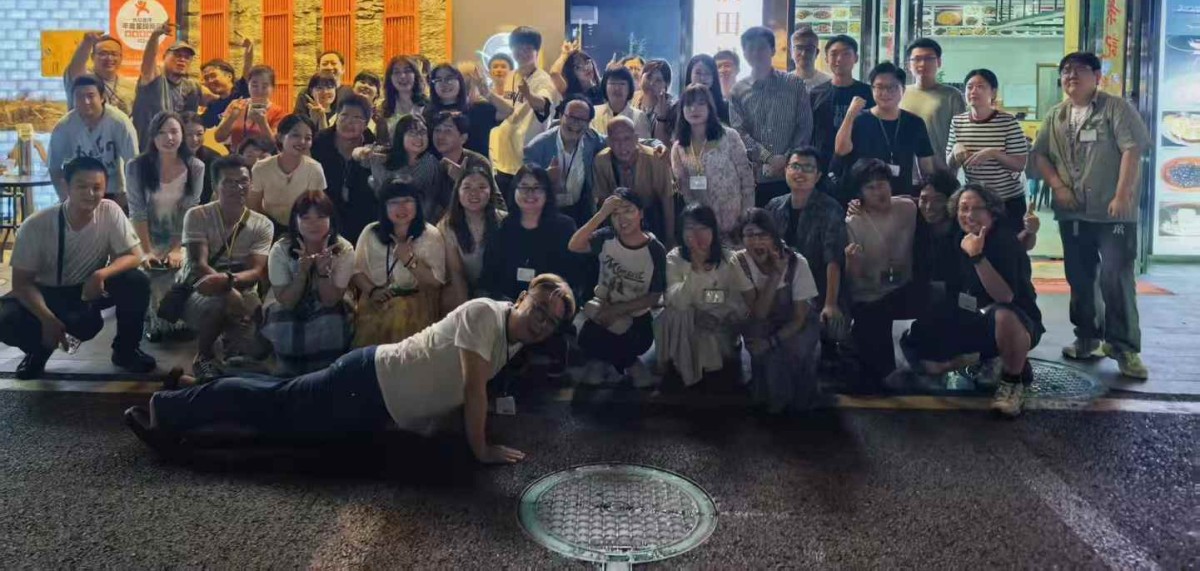
< Past Japan-China Exchange Meetups >
● oka:
The Japan-China Exchange Meetup community was originally run for a long time by my predecessor. I initially joined just as a regular participant. However, when that organizer had to return to Japan, there was a need to find someone to take over. That’s when they approached me, and I ended up becoming the second host. I officially took over the operation of the current Japan-China Exchange Meetup around January 2025.
Back in Japan, my interest in English didn’t come from the language itself—it came from how much I enjoyed interacting with people who grew up in different cultures. If you live in Japan your whole life, there’s often a sense of “this is the normal way to think about things,” but when you meet people from different cultural backgrounds, they often have completely different perspectives. I found that really fascinating.
I’ve always been the type of person who can talk to complete strangers without hesitation and quickly become friends—seriously! So taking over this kind of fun, open community felt like a perfect fit for my personality.
● oka:
What makes me happiest is definitely receiving messages of gratitude from so many people.
There are always participants who are attending for the first time and feel really nervous, saying things like, “This is my first time, so I’m a bit anxious…” Before the event, I try to reassure them by saying, “Don’t worry, it’s totally fine,” “There are lots of first-timers,” and “Everyone’s really nice—go ahead and make some friends!”
Then, after the event, when I receive messages like “I made some new friends—thank you so much!” it really warms my heart.
Especially for Japanese expats who are living overseas for the first time, it must be overwhelming at the beginning, not knowing what to expect. When I hear comments from accompanying spouses like, “I was nervous to come, but thanks to this community, I’ve made friends in China and had a great time,” I feel deeply fulfilled and think, “I’m so glad I kept this going.”
Even if someone needs a bit of courage to join us, I always try to help them connect and make friends. I aim to foster a community where both Japanese and Chinese participants can benefit equally and enjoy meaningful exchange.
Also, ever since the community was founded, I’ve made it a point to maintain a respectful atmosphere. That means no bad-mouthing, criticism, or inappropriate behavior. If something like that does happen, I make sure to address it. After all, it’s important for everyone to feel good being part of the community.
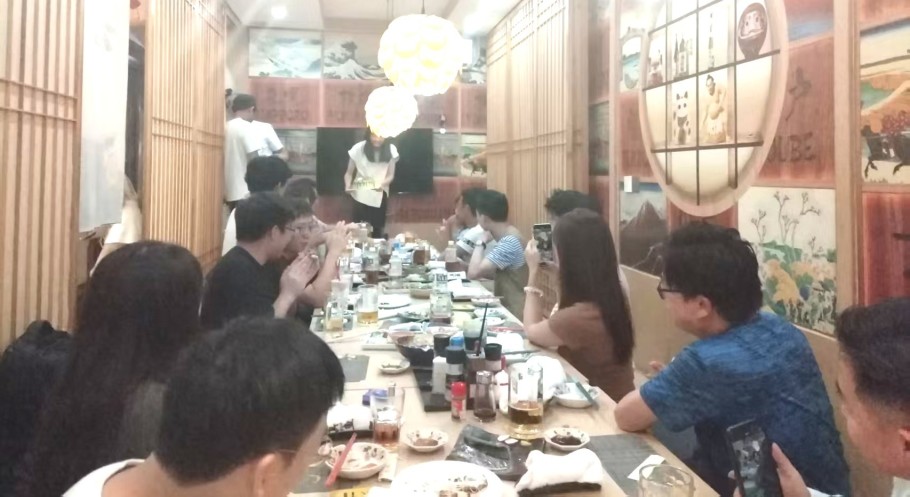
● oka:
At each session of our Japan-China Exchange event, we usually have around 30 to 50 participants. From my experience, the majority of attendees are Chinese, and many of them can speak Japanese. Of course, there’s a mix—some can’t speak Japanese at all, while others have just started learning—but overall, most of the participants tend to be Chinese individuals who can speak Japanese fairly well. Many have studied or worked in Japan before, so their proficiency is often at the JLPT N1 level, which may explain their fluency.
Some are attracted to Japanese culture—saying things like “Anime from Japan is so cool” or “Japanese games are amazing”—and quite a few of them hope to work for Japanese companies if the opportunity arises. One thing that seems to be true for all of them is that they have at least some interest in Japan. After all, it’s that interest that likely brought them to the exchange event in the first place. I’d say most of them have a very positive and friendly view toward Japan.
On the other hand, the Japanese participants usually include people who are on assignment from Japan or spouses who have moved to China because of their partner’s job.
● oka:
The main purpose of this China-Japan exchange meetup is building connections. That said, we’re not saying “Don’t exchange business cards.” If you want to, feel free. But honestly, I think most people don’t even bring business cards to this kind of event.
These days, it’s often more meaningful to build a personal connection first, rather than just handing out business cards. When people genuinely enjoy the conversation or share something memorable, they’re more likely to remember each other.
On the other hand, if it’s a more formal business networking event like those held by chambers of commerce, then yes—exchanging business cards should definitely be encouraged, since it’s more directly tied to business.
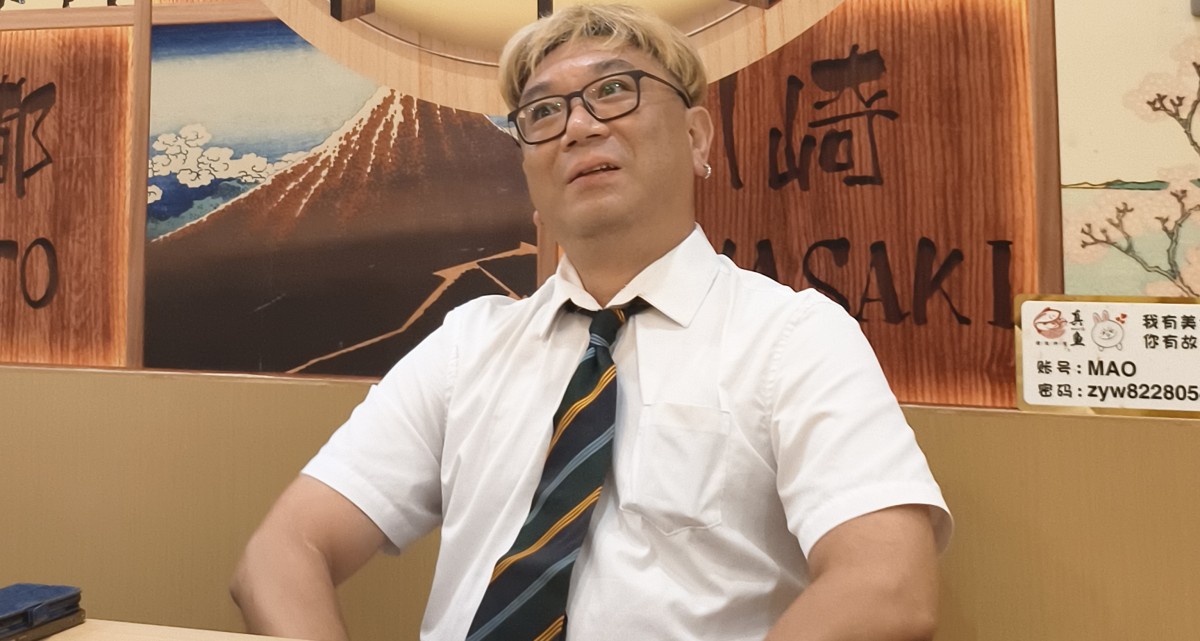
● oka:
What I really want to emphasize is the importance of having the capacity to embrace different cultures. In Japan, there’s often a mindset of “This is just common sense” or “Of course, this is how it should be.” But that kind of thinking, while perfectly natural for someone raised in Japan, doesn’t necessarily apply in other places like China or elsewhere overseas.
What’s considered “common sense” in Japan might be completely different in other cultures. Some people may feel frustrated or upset when they encounter these differences, but I think it’s important to realize that “what I believe to be common sense is not necessarily the standard around the world.”
Being able to accept that, and to listen to others with an open mind, is crucial. It’s also important to be flexible within yourself—to adopt an attitude of enjoying the differences, and to ask yourself things like, “Maybe I should change this way of thinking?” or “This part of Chinese culture is great, and this part of Japanese culture is worth preserving too.”
The ability—or inability—to do that makes a big difference.
● oka:
Everyone has their own circumstances, of course—but if the opportunity arises, I truly believe it’s worth stepping out and working overseas.
Japan is undoubtedly a wonderful country. But beyond Japan lies a completely different world. When you place yourself in that world, your perspective expands dramatically.
And since we only live once, I strongly believe it’s important to experience life in a broader context—expand your horizons, and seize the opportunities that come your way.
● oka:
Of course, going abroad can be one way to grow, but my main message to young people is: “If you’re young, just try all kinds of things.”
When you’re young, you should act with the mindset that “there’s practically no such thing as risk.” It’s okay to be reckless and throw yourself into things.
Back in the day, I used to do all sorts of crazy things—like going to Macau with the mindset, “If I win, I’ll stay at a five-star hotel. If I lose, I’ll sleep on a park bench.” (laughs)
But once you get older, or especially after you get married, taking risks like that becomes much harder. That’s why I say, while you’re still young—do the crazy stuff too. It’s all about challenge, challenge, challenge.
Some of our team members occasionally join the China-Japan Exchange Meetings.
Participants attend for various reasons — some have been involved for years, others are joining for the first time, and many come to practice speaking Japanese.
Through this interview session, we found Mr. Oka, the organizer, to be a friendly, approachable, and highly driven individual.
* The China-Japan Exchange Meeting is held regularly in Shenzhen. If you’re interested in joining, please scan the QR code at the bottom of this page labeled “Join the China-Japan Exchange Group” to apply!
If you would like to join the China-Japan Exchange WeChat group, please scan the QR code below and send a message saying “I would like to join the China-Japan Exchange Group” to complete your registration request.
〇 WeChat ID:atsushi_oka

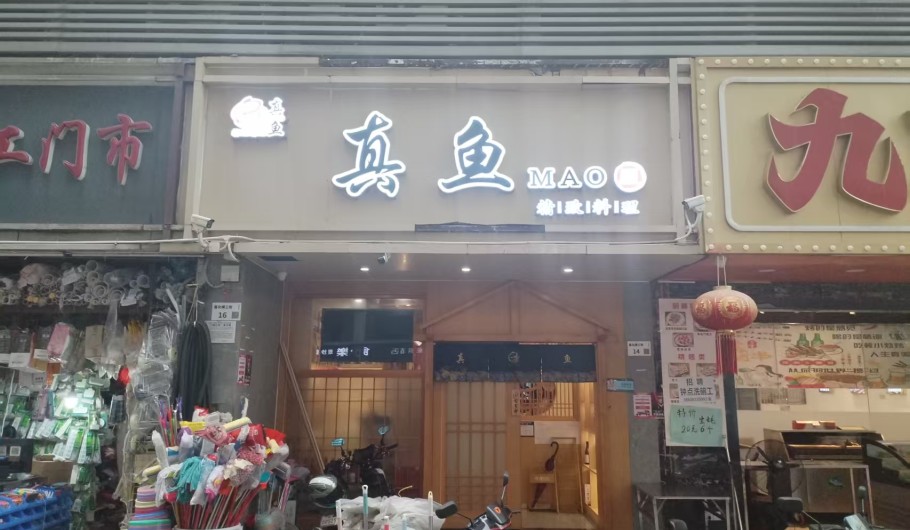
〇 Zhenyu MAO Japanese Fine Dining (Jincheng Branch)
3039, Jincheng Building, Shennan East Road, Luohu District, Shenzhen, Guangdong, China
Our company provides media article production services.
If you would like to request corporate interview articles, event coverage, or sponsored articles, please contact us via the inquiry form below.
▼ Company WeChat Official Account▼

▼ Contact person in charge WeChat ID ▼


 Follow us on WeChat
Follow us on WeChat
 WeChat Official Account
WeChat Official Account
 Person in ChargeWeChat
Person in ChargeWeChat